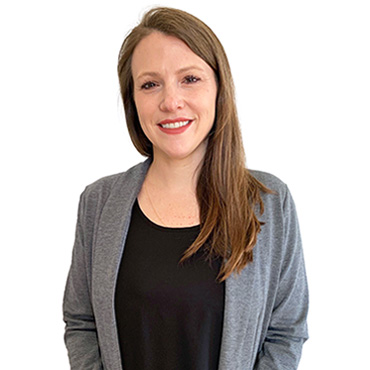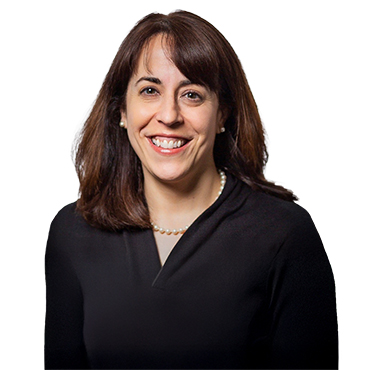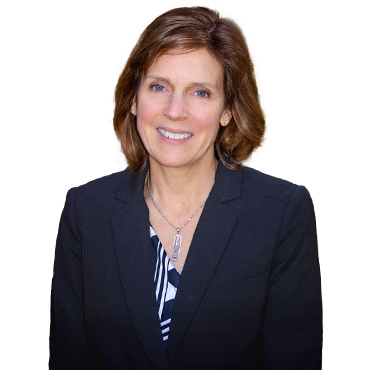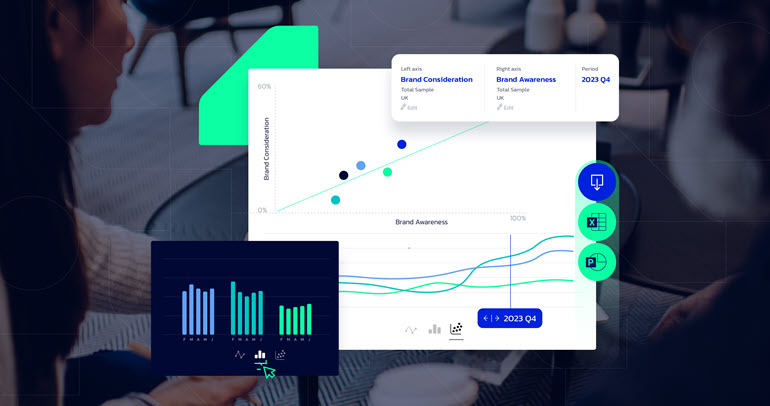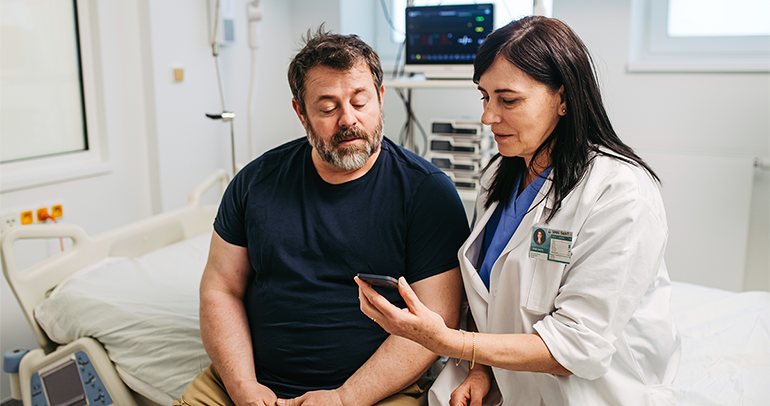
As in every industry, the challenge for pharma is to create the best possible digital customer experience—creating digital health tools that actually work for the people who use them. That means designing for integration, usability and real-world patient and provider behavior.
At Escalent Group (Escalent, C Space and Hall & Partners), we work with life sciences clients to optimize digital experience for patients, caregivers and healthcare providers (HCPs). And through that work, we’ve learned a simple truth: what matters most depends on who you’re designing for. Providers need tools that fit their workflows, patients and caregivers want solutions that fit their lives and both groups benefit when design reduces friction instead of adding to it. Here’s what a human-centered digital health experience looks like in practice, and why we need more of it to drive engagement.
How Digital Pharma Tools Can Support Healthcare Providers More Effectively
- Design workflow-friendly digital tools for healthcare providers. HCPs are desperate for time savings, so if a digital tool doesn’t fit into their workflows—whether that means integrating with EHR/EMR systems, optimizing for desktop/laptop use in the office or simply aligning with their order of operations. Anything less becomes disruptive instead of supportive, interrupting focus and undermining efficiency.
- Enable safe, simple data sharing between patients and HCPs. Patients may be willing to share their health data, but HCPs face liability and administrative overload in processing it. Digital tools must balance data access with legal and workflow safeguards.
- Help reduce redundancy for providers. HCPs don’t need standalone apps or websites for prescribing information that’s already online and easily accessible. Reinventing it only adds clutter.
How Digital Pharma Tools Can Support Patients and Caregivers More Effectively
- Ensure friction-free access for digital pharma solutions. Patients and caregivers don’t want another login, download or push notification. Digital tools should simplify their lives, not complicate them. In pharma, complexity kills engagement—people gravitate to tools that work naturally, not those that require effort.
- Meet patient and caregivers where they are. Effective digital health solutions should fit into existing routines, offering reminders, information and tracking without demanding disruptive extra steps like excessive logins or notifications.
- Understand what balanced data collection looks like for patients. Sometimes active data entry helps with patient motivation; other times, passive tracking works best. The key is understanding which method actually supports adherence.
Top Four Tips for Leveraging Digital Pharma Tools to Better Support Patients, Caregivers and HCPs More Effectively
- Omnichannel paitent and provider engagement. Success doesn’t necessarily mean another app; it means delivering the right information at the right time, in the right channel.
- AI tools that work for all in pharma. From ambient listening that enables HCPs to outsource notetaking to avatars and chat bots that can help with education, AI tools are advancing quickly. But patients and HCPs react to them differently, and that must be understood before implementation.
- Purpose-driven design for digital health solutions. Don’t build an app just to say you did. Build solutions that fit seamlessly into lives and workflows—reducing friction, not adding to it.
- Test, learn and adapt with usability testing and user experience research. True success is measured by how people use tools in the real world. Usability testing with both patients and HCPs—before and after launch—is essential for ensuring digital experiences that truly work.
How Escalent and C Space Optimize Digital Health Tools for Pharma
At Escalent Group, we believe the future of digital health is about better customer experiences. We’re uniquely positioned to help pharma clients design and optimize digital tools that work for both patients and providers because of three strengths:
- Health Insight Communities. C Space’s dedicated health insight communities provide ongoing access to HCPs, caregivers and patients—including those living with rare conditions. These online communities move beyond survey checkboxes, delivering deeper, more meaningful insights into how digital tools fit into people’s daily lives.
- Behavioral Science + UX Research. We bring together behavioral science research, journey mapping and UX testing to humanize digital experiences. Whether it’s evaluating an app’s usability, diagnosing barriers to adherence or identifying moments that matter, our approach ensures tools are not just functional—they’re engaging and intuitive. Diary studies where users share what goes on in their day and how digital solutions fit in—or simulate a digital experience and reflect on it—go the extra mile to ensure that digital tools fit into users’ lives, moving out of the hypothetical and into the intended usage.
- Co-Creation and Iterative Design. We don’t wait until launch to test usability. We practice co-creation with patients and HCPs throughout the development process, from ideation to post-launch iteration. That means our clients design tools with their audiences, not just for them.
Designing Research-Driven, Human-Centered Digital Health Experiences That Deliver Lasting Value
Digital tools in pharma don’t fail because of lack of innovation. They fail because they don’t fit into the realities of patient lives and provider workflows. By focusing on integration, usability and purpose—and by working closely with patients and HCPs throughout the process—pharma can design solutions that truly matter.
At Escalent Group, that’s exactly what we do. We help our clients create digital experiences that are human-centered, clinically relevant and built to last.
Want to learn more? Let’s connect.
